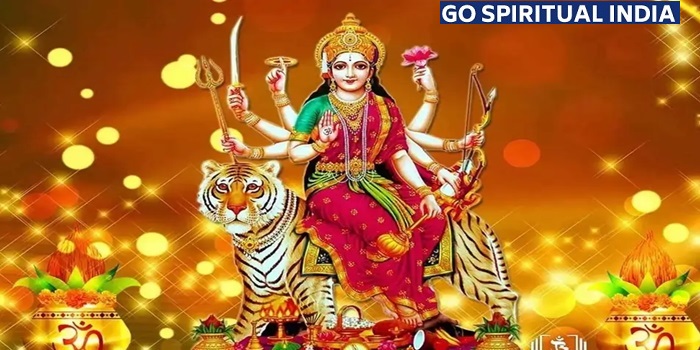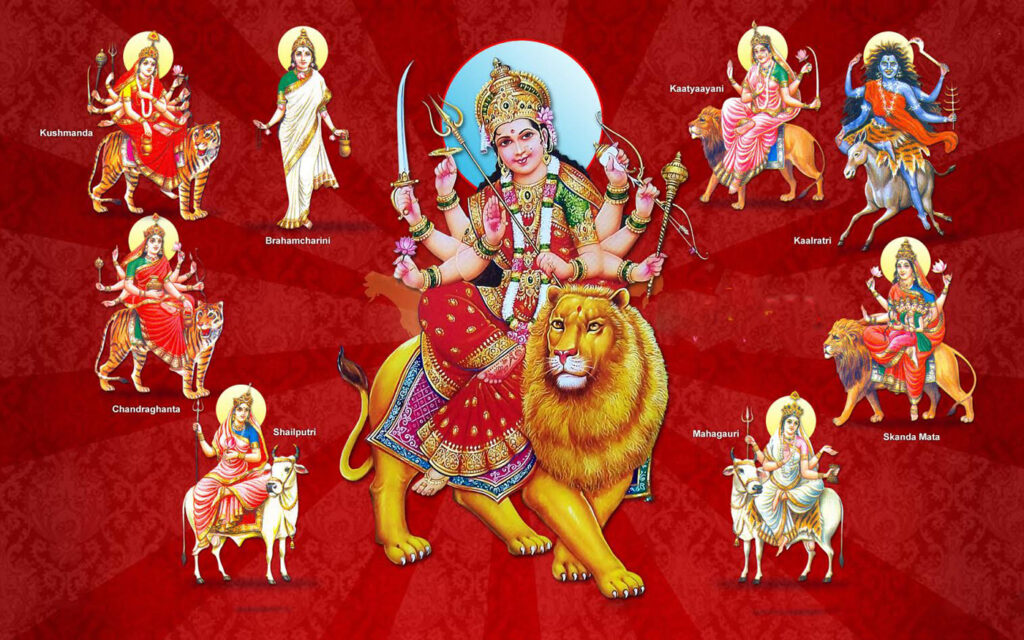
Navratri, one of the most revered festivals in India, is not only a celebration of devotion, dance, and color but also a deep spiritual journey towards self-realization. This nine-night festival dedicated to the worship of Goddess Durga symbolizes the victory of good over evil, light over darkness, and spiritual awakening over ignorance. It is a time for devotees to reconnect with their inner selves, harness their spiritual energy, and seek divine guidance.
In the hustle and bustle of daily life, we often lose sight of our spiritual path. Navratri offers us a chance to pause, reflect, and re-align with our inner divinity. Each of the nine nights represents the triumph of the Goddess over the demon Mahishasura, symbolizing the defeat of our own inner demons—fear, ego, anger, greed, and doubt.
The Spiritual Essence of Navratri
Navratri is more than just rituals and traditions; it is a spiritual journey that takes us through the three key aspects of the Divine Mother—Durga, Lakshmi, and Saraswati. These three goddesses represent power, wealth, and wisdom respectively, and their worship guides devotees toward achieving balance and harmony in life.
- Durga: The first three days are dedicated to Goddess Durga, the fierce protector who destroys evil forces and negative energies. This phase encourages us to shed negative patterns and cleanse our mind, body, and soul.
- Lakshmi: The next three days are devoted to Goddess Lakshmi, symbolizing abundance and prosperity. Spiritually, this phase represents the importance of cultivating inner wealth, such as kindness, compassion, and generosity.
- Saraswati: The final three days honor Goddess Saraswati, the embodiment of wisdom and knowledge. During this time, we seek spiritual wisdom and the light of knowledge to elevate our consciousness.
By aligning ourselves with these divine energies, we can purify our minds and hearts, leading to a deeper connection with the Self and the Supreme.
Fasting: A Path to Self-Discipline and Mindfulness
Fasting during Navratri is not just a ritualistic practice, but a way to cultivate self-discipline and mindfulness. It is believed that fasting helps to detoxify the body and clear the mind, enabling us to focus on spiritual practices like meditation, prayer, and introspection.
This period of fasting also encourages the cultivation of positive habits and restraint from negative actions. When we abstain from indulgences and distractions, we create space for spiritual growth and reflection, helping us connect with the divine energy that resides within us.
The Role of Dance and Music: A Spiritual Expression
Garba and Dandiya, the traditional dance forms associated with Navratri, are not merely cultural performances but powerful spiritual expressions. The circular movements of Garba symbolize the cyclical nature of life, with the center representing the eternal truth—God. Dancing around the center signifies our journey towards realizing this truth, while the rhythmic beats of the music help us connect with the universal rhythm of life.
For many, participating in Garba and Dandiya is a form of meditation in motion, where the mind becomes quiet, and the spirit flows in harmony with the divine.
Navratri and Inner Transformation
Navratri is not only a festival of celebration but also a time for inner transformation. The nine nights of devotion, fasting, and reflection help to cleanse the soul and rejuvenate the spirit. It is a period of surrendering to the divine, where we let go of our worldly attachments and open ourselves to higher wisdom.
At Go Spiritual India, we believe that Navratri offers a unique opportunity to deepen one’s spiritual practice. Whether through meditation, chanting, or simple acts of kindness, this festival encourages us to rise above our limitations and connect with the divine presence within and around us.
Embracing Spirituality in Modern Times
In today’s fast-paced world, where stress, anxiety, and disconnection are prevalent, festivals like Navratri remind us of the importance of spirituality in everyday life. By embracing the deeper meanings behind the rituals and practices, we can create a spiritual foundation that helps us navigate life’s challenges with greater clarity, purpose, and peace.
As we celebrate Navratri in 2024, let us use this sacred time to reflect on our spiritual journey, renew our commitment to self-growth, and reconnect with the divine energies that guide and protect us. Let Navratri be not just a festival of external celebration, but a time for inner awakening and transformation.
May the blessings of Maa Durga bring peace, prosperity, and spiritual enlightenment to all. Shubh Navratri!








